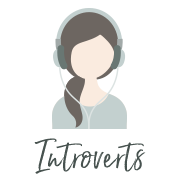Foods to Eat for Better Sleep + Greater Productivity
/Last year I set two goals for myself. One was to not work on the weekends and the other was to get seven or more hours of sleep each night. There have been some bumpy moments along the way, but for the most part, I've managed to stick to these two rules. And let me tell you, the difference is HUGE. My energy levels are up. My productivity levels are up. My ability to focus is way up. So you can see how this would have a direct impact on business.
This is why I'm so excited to have our guest author, Jill Merkel, here today to talk to us about how your diet can affect sleep quality. Because not only do we want between 6 and 8 hours of sleep every night, we want those hours to be restful and rejuvenating. Jill is a Registered Dietitian, so she definitely knows her stuff. Read on to find out more about the foods you should eat for a better sleep.
+++++++++++++++++++++++++++++++++++
Sleep is so important for the body and may be the first thing to go from the “to do” list when life gets busy. Some even wear their poor sleep habits as a “badge of honor,” re-emphasizing how busy they are or their lack of need for much sleep. The recommended amount of sleep for adults by the National Sleep Foundation is 7-9 hours. It’s not recommended to get less than 6 hours or more than 10 hours. A consistent sleep routine is better than a sporadic sleep pattern.
What Sleep Does For You
- Restores your body
- Repairs, strengthens, and rebuilds muscles
- Stimulates immune system
- Improves cognitive function, memory, and coordination
- Increases calcium retention and strengthens bone mass
Inadequate sleep can be described as shorter sleep duration or poor sleep quality. Sleep deprivation is 4 hours (or less) of sleep per night!
- Increases appetite, especially for high calorie, carbohydrate-rich foods
- Increases storage of calories as fat, especially around the abdominal area
- Increases inflammation
- Causes fatigue, low energy, slower recovery, and poor focus
- Increases risk of injury
Did you know that consuming certain foods might help you sleep better? The Dietary Guidelines for Americans recommends eating a variety of foods and nutrients, including fruits, vegetables, lean protein, complex carbohydrates, low-fat dairy, nuts, and seeds. Consuming a well-balanced diet appropriate in calories is vital for maintaining a healthy weight, preventing certain disease states (obesity, heart disease, type 2 diabetes, and more), and aiding in overall health. But we often overlook the effects of certain foods on sleep quality.
Melatonin is a “sleep hormone” that helps to control your sleep and wake cycle. It is released when the sun goes down and alerts the body that it’s time to wind down. Melatonin supplements are a popular item because you can get them over the counter, but there are also foods that naturally contain melatonin.
- Goji Berries
- Raspberries
- Almonds
- Tomatoes
- Tart Cherries
- Orange Bell Peppers
- Walnuts
- Flaxseeds
Lifestyle factors can also affect your sleep habits. Engaging in regular physical activity, limiting sitting and screen time, and finding ways to reduce stress will help to facilitate a regular, healthy sleep pattern.
Other Sleep Tips
- Limit screen time (computer, TV, cell phones) before bed (the light is stimulating to the brain)
- Avoid caffeine 4-5 hours prior to sleep
- Avoid eating a large meal before bed (if hungry, try a light protein-based snack such as a glass of low-fat milk or half of a turkey sandwich)
- Eye masks and earplugs can be useful, especially during travel
- Naps should be kept to less than one hour and not too close to bedtime
Bottom Line
Sleep is important for overall health—weight loss/control, recovery, immune health, and cognitive function. Maintaining a healthy body weight, engaging in regular physical activity, and consuming a nutrient-dense, well-balanced diet can help facilitate better sleep quality.
About Jill
 Jill is a Registered Dietitian currently living in Minneapolis. She specializes in sports nutrition and works with athletes of all ages. She is passionate about helping others realize that small changes over time can lead to big results. She started her health & fitness blog RunEatSnap in order to provide quality nutrition information and to inspire others to live a healthy lifestyle.
Jill is a Registered Dietitian currently living in Minneapolis. She specializes in sports nutrition and works with athletes of all ages. She is passionate about helping others realize that small changes over time can lead to big results. She started her health & fitness blog RunEatSnap in order to provide quality nutrition information and to inspire others to live a healthy lifestyle.
Website // Twitter // Facebook // Instagram








